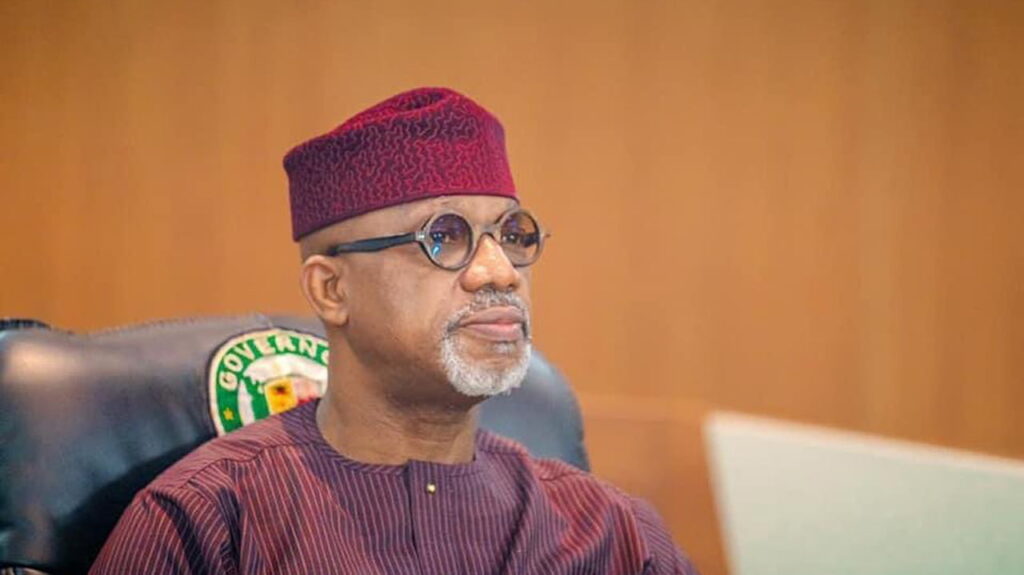Ayomide Awe & Aishah Waliyullah
The battle over bad roads in Ogun State has intensified, as residents lashed out at aides of Governor Dapo Abiodun for defending his administration’s record on infrastructure.
The backlash followed a social media post by the governor’s media aide, Mabeweje Tayo, titled “Governor Dapo Abiodun Is Fixing Ogun’s Roads, One Step at a Time.” In the post, Tayo argued that “no governor, no matter how visionary, can fix every road in Ogun within a single tenure or even two.”
He said the governor inherited “a landscape of forgotten roads and frustrated communities,” and has since been working to “connect communities, open economic corridors, and ensure that every part of Ogun feels the impact of good governance.”
Tayo insisted that Abiodun’s approach is “remarkable in his sense of equity and balance,” stressing that the administration has constructed or rehabilitated over 1,200 kilometres of roads across Ogun’s three senatorial districts.
“He has resisted the temptation of concentrated development in one zone. From Ogun East to Ogun West and Central, his projects are spread like well-planned mosaics,” Tayo wrote.
But many residents did not share his optimism. They flooded social media with angry reactions, accusing the aide of peddling propaganda and defending failure.
“Lies from the pit of hell,” wrote David Oluwafemi, a Facebook user. “How on earth can citizens move forward if we decide to celebrate an underperforming government?”
Another user, Adegoke Arodun, described Tayo’s post as “a demonic write-up,” asking: “Do you know what people in Ayobo-Lafenwa, Itele, Ayetoro-Tele, Ota, or Ewu go through daily?”
He added that local governments could handle smaller road projects more effectively, but alleged that “greed wouldn’t allow that kind of change.”
For Olurotimi Shokunbi, the situation in Ogun was worse than in neighbouring states.
“Oyo State, Ibadan in particular, has better roads, even on inner streets where you wouldn’t expect government presence. Ogun is richer, yet we lag behind,” he said.
Others like Olanrewaju Sanyudeen Celestine questioned the government’s figures, arguing that “1,200 kilometres in six years is too small for a governor who promised massive infrastructure.”
Several commenters also cited neglected roads in places such as Ipaja-Ayetoro, Obada, and Ijoko-Lambe, where residents say road conditions have become unbearable.
“If you live here, you don’t need anyone to tell you how bad things are,” said one trader in Ijoko. “Every day, we push vehicles out of deep potholes. What we want is real work, not press statements.”
Tayo, however, maintained that many of the worst roads — including Lagos–Abeokuta and Sango–Ota corridors — fall under federal jurisdiction.
“The governor has repeatedly reached out to the Federal Government for permission to repair or take over, but has been delayed due to negotiation, approval, and funding issues,” he explained.
He also claimed that the administration’s progress has “brought renewed investor confidence,” saying, “The same road that carries farm produce now carries new businesses, new jobs, and new possibilities.”
Still, residents remain unconvinced. Many argue that the administration’s performance on road infrastructure does not reflect the governor’s promises.
One commuter said bluntly “:Dapo Abiodun has not justified why he is governor of Ogun State. Ogun West has not benefitted from his government.”
Analysts believe the problem goes beyond politics. Ogun State, they say, bears a disproportionate burden of maintaining federal roads due to its proximity to Lagos and its role as a major industrial corridor.
A senior urban planner in Abeokuta told PLATFORM TIMES that while progress may be ongoing, perception is key.
“People want to see roads they can drive on — not just read about. It’s as much a communication issue as it is an engineering one,” the expert said.
Despite the growing public frustration, aides close to the governor insist that development is evenly spread across the state.
“We’re not working for applause,” one senior aide said. “We’re building for continuity and the future.”
For now, the argument over Ogun’s roads remains as bumpy as the highways themselves. While the government touts its achievements, residents continue to measure progress by the roughness of their daily commute.
As one political commentator observed, “Ogun’s roads have become a metaphor for governance, trust, and leadership. The governor says he’s building steadily; the people say they’re still stuck in potholes. Somewhere in between lies the truth.”
Do you want to share a story with us? Do you want to advertise with us? Do you need publicity for a product, service, or event? Contact us on WhatsApp +2348183319097 Email: platformtimes@gmail.com
We are committed to impactful investigative journalism for human interest and social justice. Your donation will help us tell more stories. Kindly donate any amount HERE




